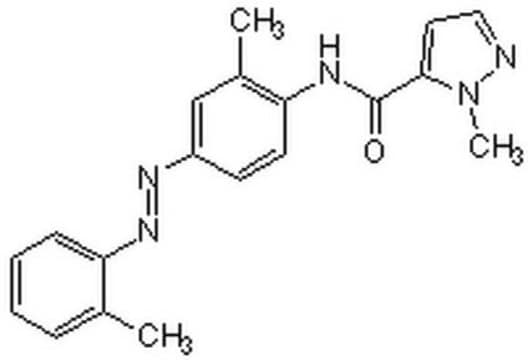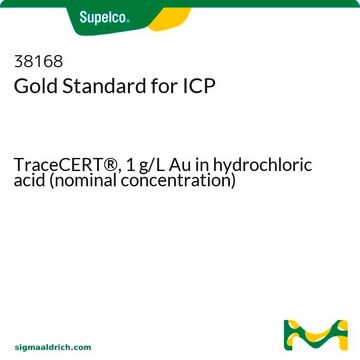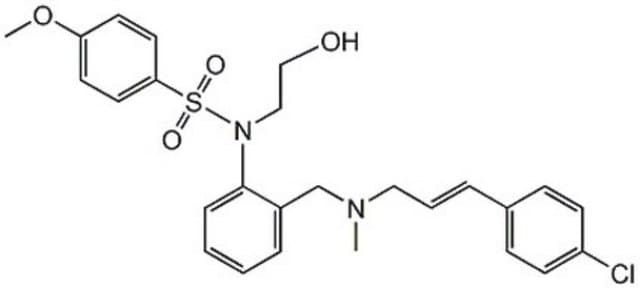E2279
Monoclonal Anti-Endonuclease VIII antibody produced in mouse
~1.5 mg/mL, clone E8-122, purified immunoglobulin, buffered aqueous solution
Synonyme(s) :
Monoclonal Anti-Endo VIII
About This Item
Produits recommandés
Source biologique
mouse
Conjugué
unconjugated
Forme d'anticorps
purified immunoglobulin
Type de produit anticorps
primary antibodies
Clone
E8-122, monoclonal
Forme
buffered aqueous solution
Poids mol.
antigen ~30 kDa by SDS-PAGE
Espèces réactives
E. coli
Concentration
~1.5 mg/mL
Technique(s)
indirect ELISA: suitable
western blot: 10-20 μg/mL using recombinant endonuclease VIII (Cat No. E0651)
Isotype
IgM
Conditions d'expédition
dry ice
Température de stockage
−20°C
Modification post-traductionnelle de la cible
unmodified
Description générale
Spécificité
Immunogène
Application
Actions biochimiques/physiologiques
Forme physique
Stockage et stabilité
Clause de non-responsabilité
Not finding the right product?
Try our Outil de sélection de produits.
Code de la classe de stockage
12 - Non Combustible Liquids
Classe de danger pour l'eau (WGK)
nwg
Point d'éclair (°F)
Not applicable
Point d'éclair (°C)
Not applicable
Certificats d'analyse (COA)
Recherchez un Certificats d'analyse (COA) en saisissant le numéro de lot du produit. Les numéros de lot figurent sur l'étiquette du produit après les mots "Lot" ou "Batch".
Déjà en possession de ce produit ?
Retrouvez la documentation relative aux produits que vous avez récemment achetés dans la Bibliothèque de documents.
Notre équipe de scientifiques dispose d'une expérience dans tous les secteurs de la recherche, notamment en sciences de la vie, science des matériaux, synthèse chimique, chromatographie, analyse et dans de nombreux autres domaines..
Contacter notre Service technique

![Benzo[a]pyrène-d12 98 atom % D](/deepweb/assets/sigmaaldrich/product/structures/962/892/b867e1bb-083c-4337-b499-36eae87f40ad/640/b867e1bb-083c-4337-b499-36eae87f40ad.png)




